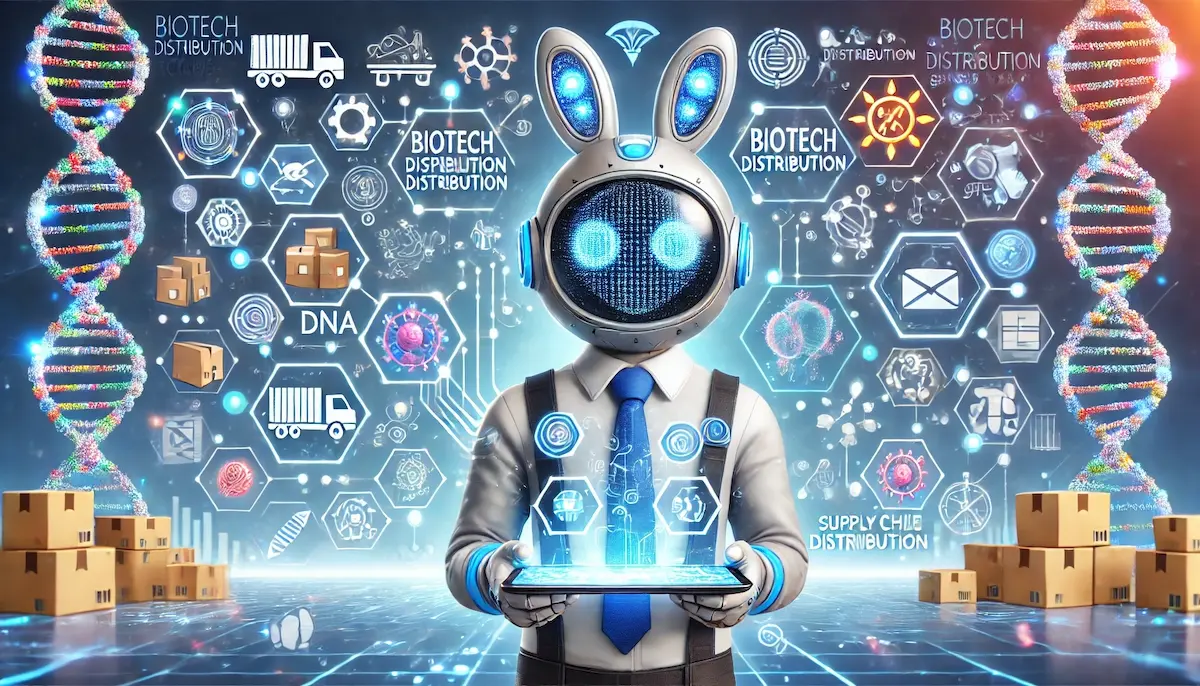Biotech distribution is a critical component of the biotechnology industry’s supply chain, ensuring that biological products, medical devices, pharmaceuticals, and research materials reach their intended destinations safely, efficiently, and in compliance with regulatory standards. Effective distribution is essential for maintaining product integrity, meeting customer demands, and supporting the overall success of biotech companies.
Understanding Biotech Distribution
Biotech distribution involves the logistics, management, and coordination required to transport biotechnology products from manufacturers to end-users, which can include hospitals, research institutions, laboratories, pharmacies, and directly to consumers. Given the sensitive nature of many biotech products, distribution processes must account for factors such as temperature control, regulatory compliance, and timely delivery.
The Importance of Biotech Distribution
- Maintaining Product Integrity: Biotech products often require specific conditions (e.g., temperature, humidity) to remain effective. Proper distribution ensures these conditions are maintained throughout the supply chain.
- Regulatory Compliance: The biotech industry is subject to stringent regulations regarding the handling, transportation, and storage of products. Compliance is crucial to avoid legal penalties and ensure product safety.
- Timely Delivery: Many biotech products have limited shelf lives or are critical for patient care. Efficient distribution ensures products reach their destinations promptly, minimizing delays and potential losses.
- Global Reach: Biotech companies often operate on a global scale. Effective distribution networks enable the seamless delivery of products across international borders, supporting global operations and market expansion.
- Customer Satisfaction: Reliable distribution contributes to customer satisfaction by ensuring that products arrive in good condition and on time, fostering trust and loyalty.
Key Components of Biotech Distribution
- Cold Chain Management: Many biotech products, such as vaccines and biologics, require temperature-controlled environments. Cold chain management involves maintaining specific temperature ranges throughout transportation and storage to preserve product efficacy.
- Regulatory Compliance: Adhering to regulations from bodies like the FDA, EMA, and other international agencies is essential. This includes proper documentation, labeling, and adherence to Good Distribution Practices (GDP).
- Inventory Management: Effective inventory management ensures that products are available when needed without overstocking. This involves tracking stock levels, managing expiration dates, and optimizing storage conditions.
- Transportation Logistics: Selecting appropriate transportation methods (e.g., air, sea, land) and carriers that can handle the specific requirements of biotech products is crucial. This includes ensuring timely and secure delivery.
- Warehousing and Storage: Specialized warehousing solutions may be required to store biotech products under controlled conditions. This includes temperature-controlled facilities, secure storage areas, and proper handling protocols.
- Tracking and Monitoring: Implementing real-time tracking and monitoring systems helps ensure that products are transported under the correct conditions and allows for immediate action if any deviations occur.
- Risk Management: Identifying and mitigating risks associated with distribution, such as temperature excursions, delays, and damage, is essential for maintaining product integrity and compliance.
Challenges in Biotech Distribution
- Temperature Sensitivity: Maintaining the required temperature throughout the distribution process is challenging, especially for long-distance or international shipments.
- Regulatory Complexity: Navigating the varying regulations across different countries and regions can be complex and requires specialized knowledge.
- Supply Chain Disruptions: Factors such as natural disasters, geopolitical events, pandemics, and transportation delays can disrupt the supply chain, leading to potential product losses or delays.
- Cost Management: The specialized equipment and processes required for biotech distribution can be costly. Balancing cost-efficiency with the need for maintaining product integrity is a constant challenge.
- Counterfeit Prevention: Ensuring the authenticity of products and preventing the distribution of counterfeit or substandard items is critical for maintaining trust and safety.
- Scalability: As biotech companies grow and expand into new markets, scaling distribution operations to meet increased demand without compromising quality can be difficult.
Best Practices for Effective Biotech Distribution
- Implement Robust Cold Chain Solutions: Invest in advanced cold chain technologies and infrastructure, including temperature-controlled packaging, real-time monitoring systems, and reliable transportation partners.
- Ensure Regulatory Compliance: Stay up-to-date with the latest regulations and standards. Implement comprehensive compliance programs and provide regular training to staff involved in distribution processes.
- Leverage Technology for Tracking and Monitoring: Utilize GPS tracking, RFID tags, IoT sensors, and advanced software solutions to monitor shipments in real time, ensuring conditions are maintained and enabling prompt responses to any issues.
- Optimize Inventory Management: Use inventory management systems to track stock levels, manage expiration dates, and forecast demand accurately. Implement just-in-time inventory practices to reduce waste and storage costs.
- Select Reliable Partners: Partner with logistics providers, carriers, and warehousing companies that specialize in biotech distribution and have a proven track record of maintaining product integrity and compliance.
- Develop Contingency Plans: Prepare for potential disruptions by developing contingency plans, including alternative transportation routes, backup suppliers, and emergency response protocols.
- Conduct Regular Audits and Assessments: Regularly audit distribution processes and assess compliance with regulatory standards. Identify areas for improvement and implement corrective actions as needed.
- Invest in Training and Education: Provide ongoing training for staff involved in distribution to ensure they understand the specific requirements of biotech products and the importance of maintaining product integrity.
- Enhance Security Measures: Implement stringent security protocols to prevent theft, tampering, and counterfeit products from entering the supply chain. This includes secure packaging, tamper-evident seals, and thorough verification processes.
- Foster Collaboration and Communication: Promote effective communication and collaboration among all stakeholders in the distribution chain, including manufacturers, logistics providers, regulators, and customers. This ensures transparency, coordination, and quick resolution of any issues that arise.
In conclusion, biotech distribution is a vital aspect of the biotechnology industry’s supply chain, requiring meticulous planning, specialized knowledge, and robust systems to ensure products reach their destinations safely and efficiently. By adhering to best practices and continuously addressing challenges, biotech companies can enhance their distribution processes, maintain product integrity, and support the overall success and growth of their operations.
